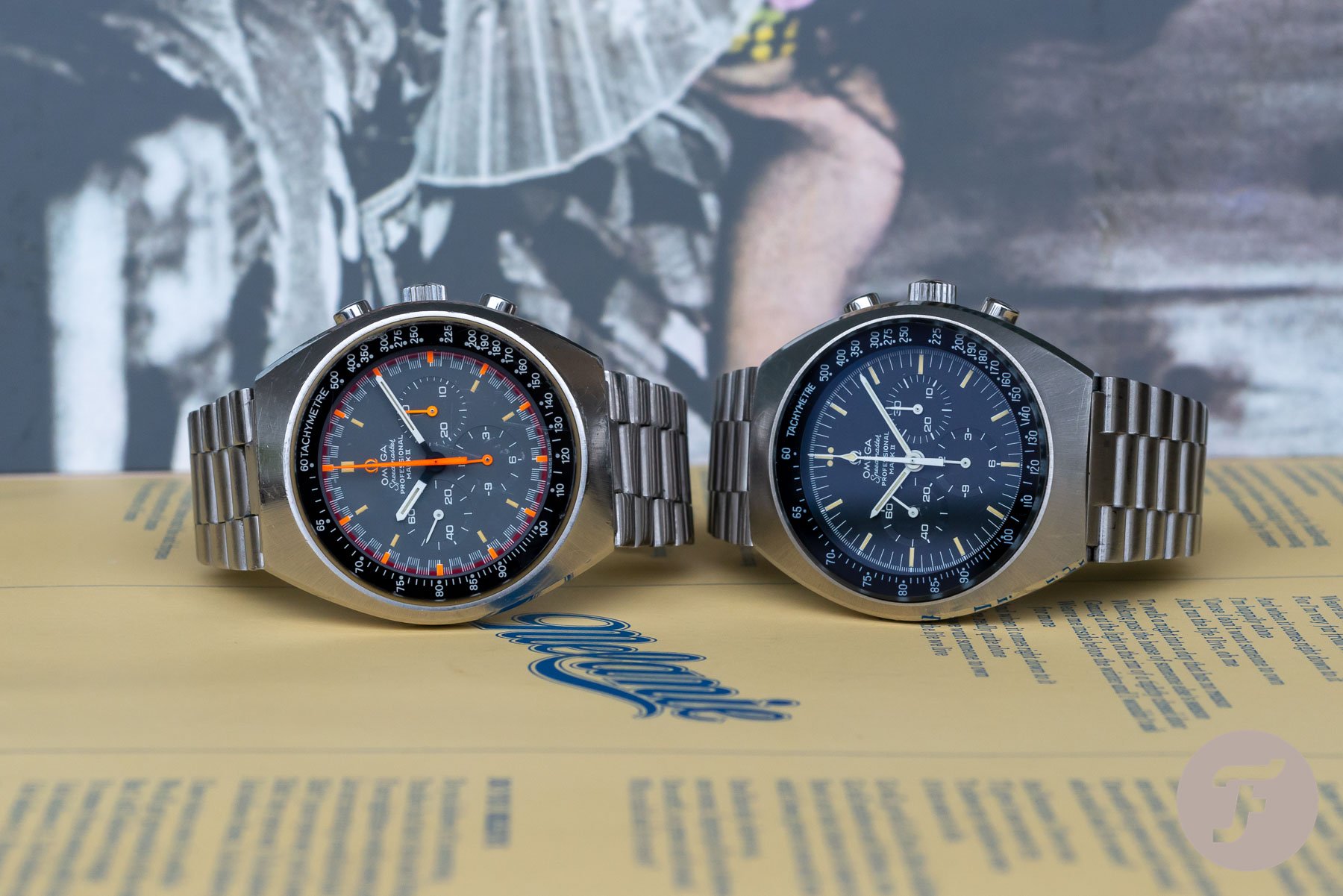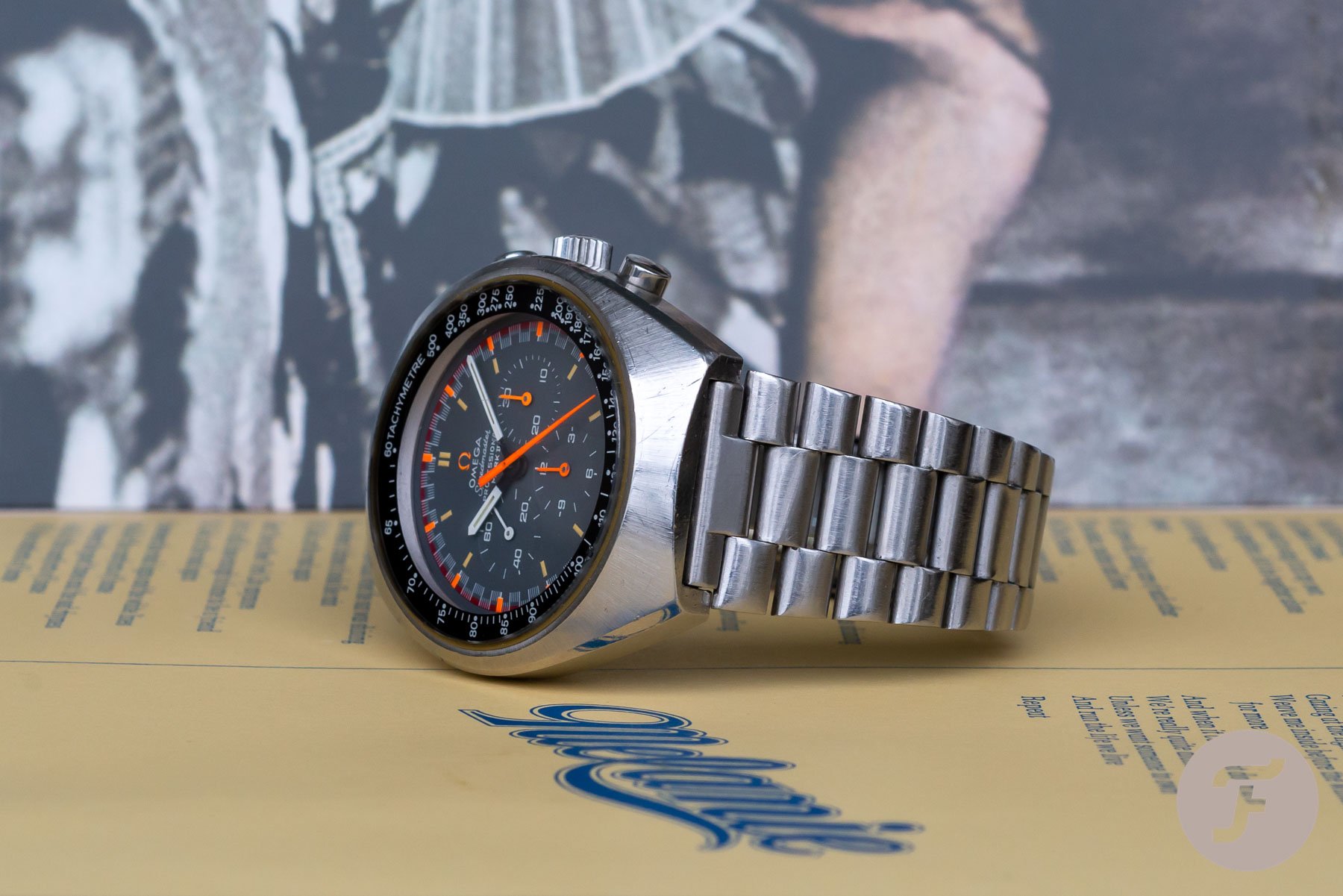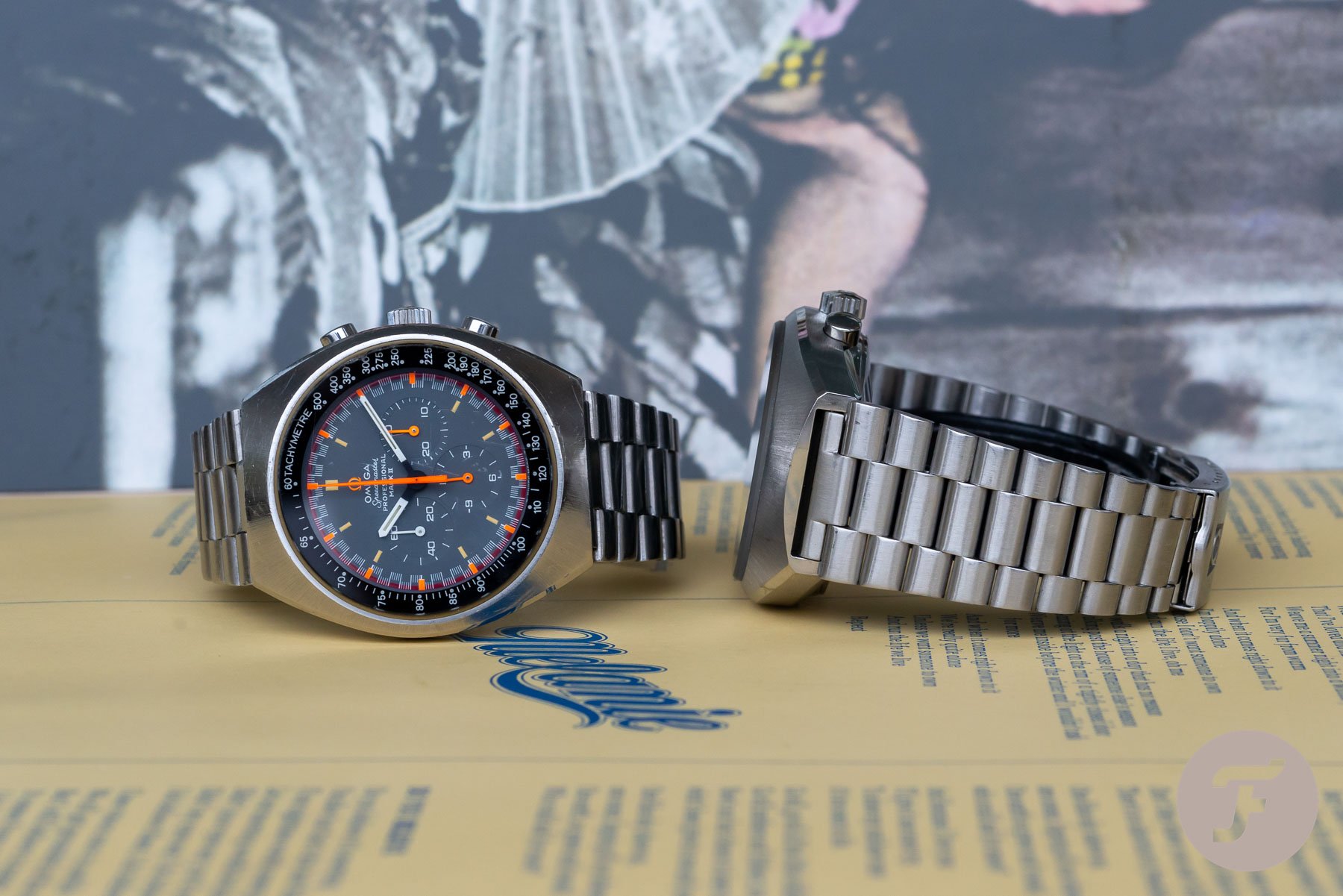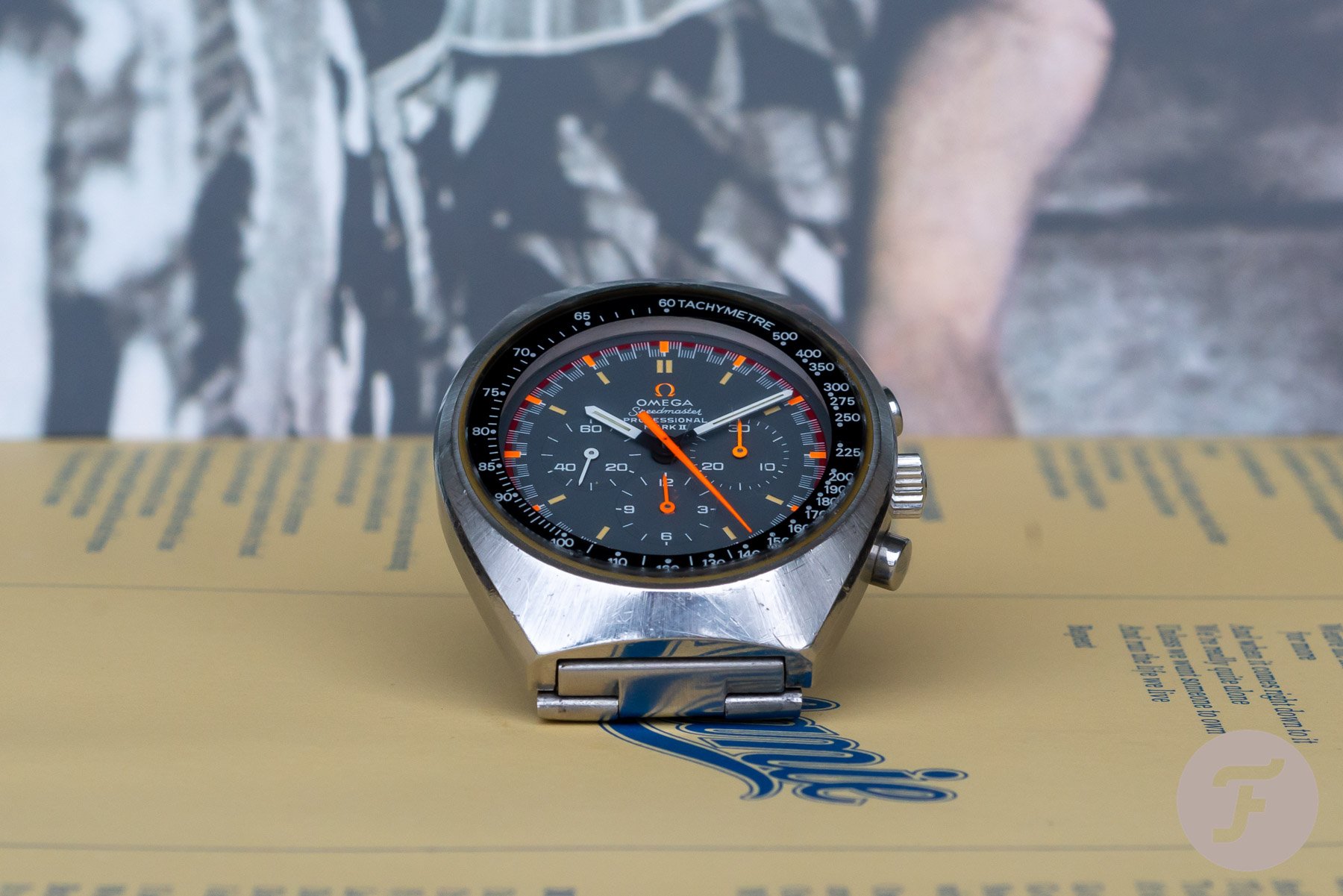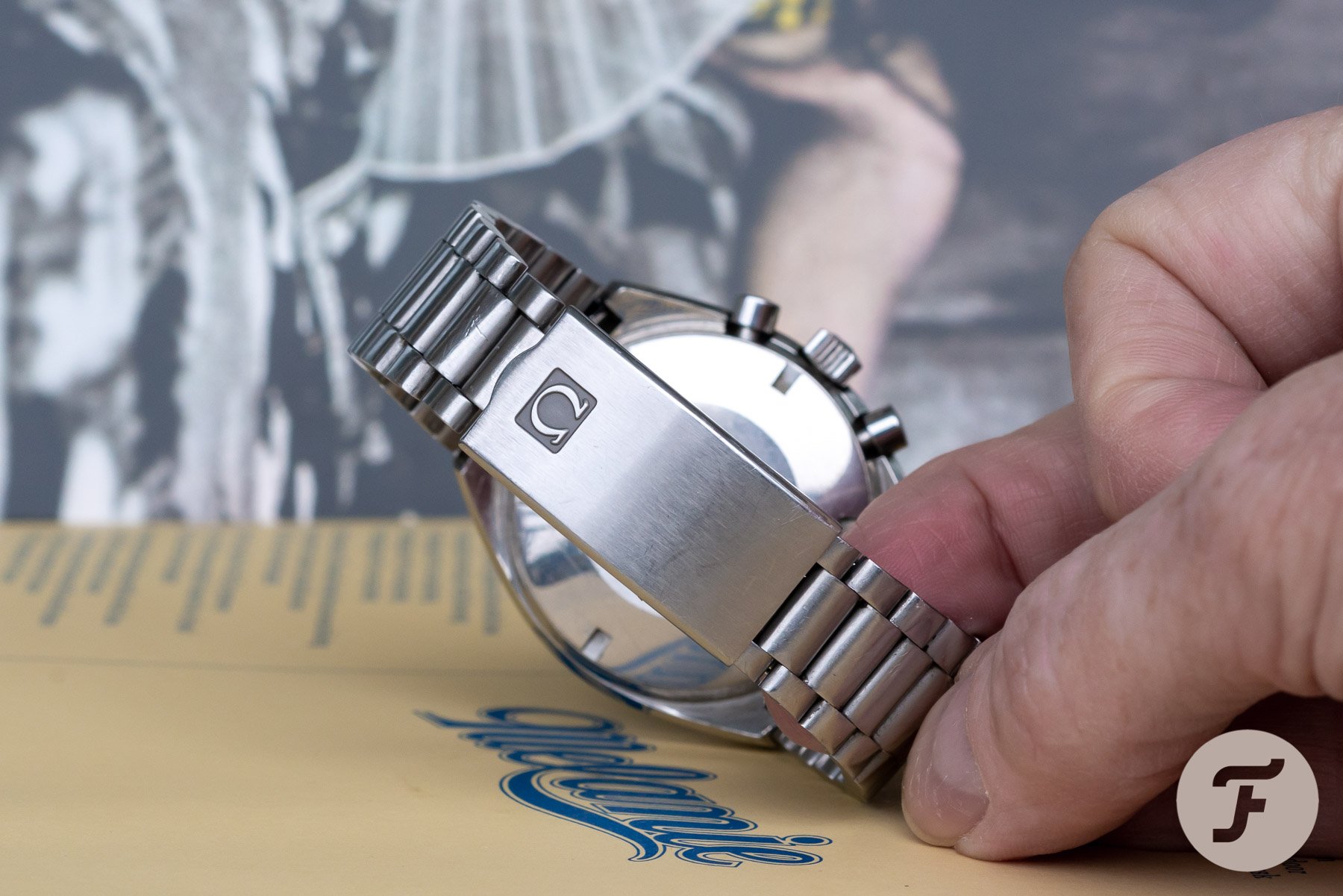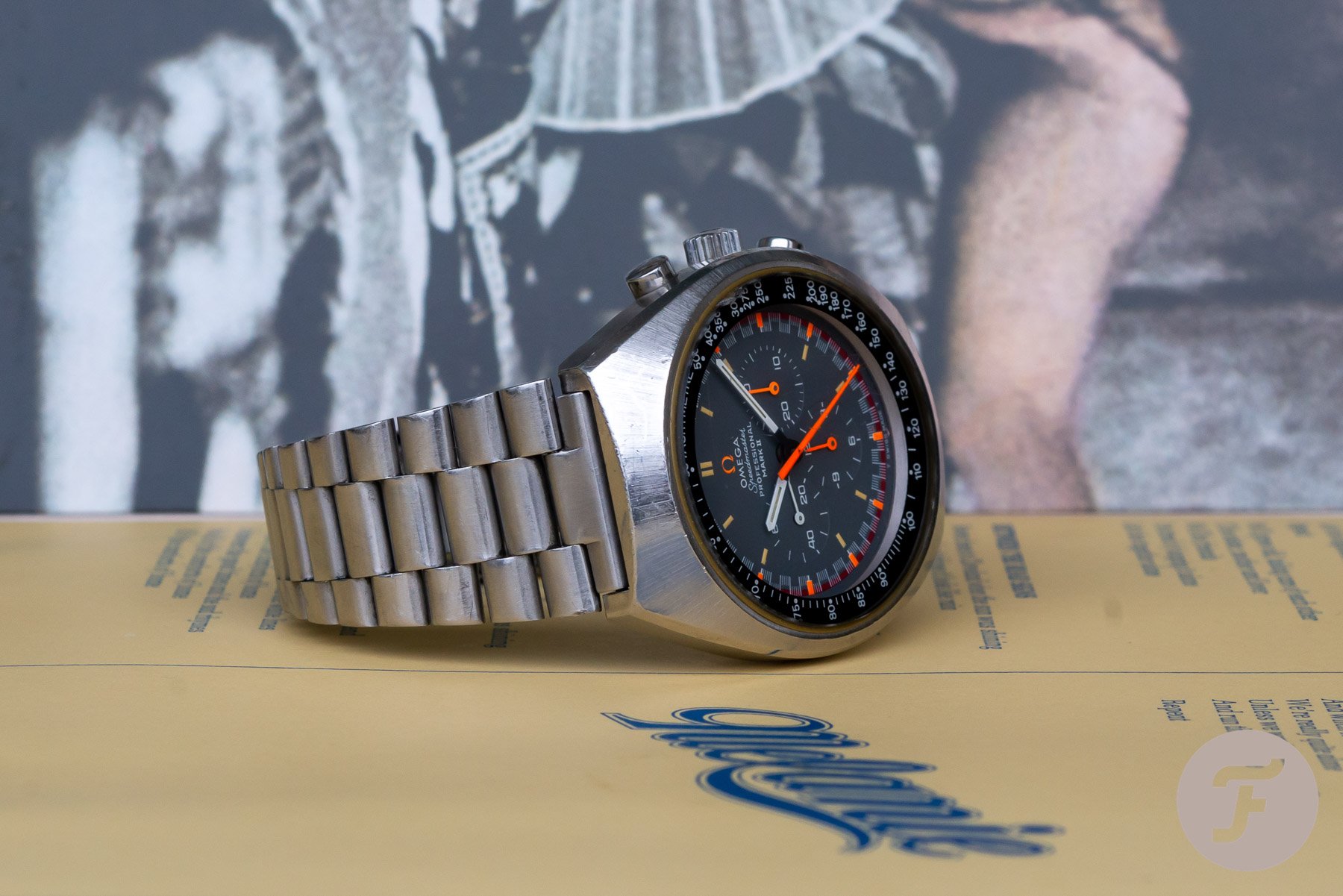From The Archives: The Omega Speedmaster Mark II Racing 145.014
One of the most overlooked Speedmaster models is the Mark II. Whether it’s the original from the late 1960s/early 1970s or one of the re-editions from 2014 or later, watch enthusiasts love to ignore this model. Omega introduced it as a modernized Speedmaster Professional in 1969, but it never gained the same iconic status as the original Moonwatch. The brand tried again in 2014, introducing a new Mark II with a modern self-winding Co-Axial chronometer movement. Today, though, I think it’s time to put the spotlight on the original Speedmaster Mark II reference 145.014 once more.
For a long time, I neglected the Speedmaster Professional Mark II as well. It was mainly because of the case shape, which didn’t appeal to me. Not least of all, I thought it would be uncomfortable on the wrist. But I regret to this day that I didn’t buy one in my early years as a Speedmaster collector. Back then, they were cheap. Just a few hundred euros could get you a nice-looking Speedmaster Mark II. I finally added a Mark II to my modest collection in 2014, though I didn’t find it very convincing at first. However, after having my Speedmaster Mark II 145.014 restored, I discovered that I actually liked it on the wrist. I wrote an in-depth article on my Speedmaster Mark II 145.014 here. Although that article is now eight years old, it still describes the 145.014 very accurately.
Speedmaster Mark II Racing Dial
The Speedmaster Mark II 145.014 in this article is slightly different as it has a lovely racing dial. This particular watch dates to 1970 and has a gray dial with red and orange accents and orange chronograph hands. Besides the hands and the racing dial, it’s the same as a regular Omega Speedmaster Mark II 145.014. In fact, this dial is very close to the racing dials of the last Speedmaster Professional ref. 145.022-69, except for the “Mark II” text, of course. In 2004, these dials were the inspiration for the Speedmaster Professional Japan Racing model ref. 3570.40. Needless to say, both the original Moonwatch references with a racing dial and the 2004 Japan Racing are highly desirable and fetch impressive prices on auctions and sales. Compared to those, the Mark II with a racing dial is a steal.
Reference 145.014 comes in two flavors
You’ll find that the hour and minute hands here are slightly different from the all-white ones on the Japan Racing. The racing-dial 145.022-69 Moonwatch also had the same hands as this 145.014, though. The cases of the Mark II series are all the same, with a 41.7 × 45.5 × 15mm tonneau shape. Please note that the 145.014 reference is also the same for the standard and racing-dial Mark IIs. Consequently, you have to go through pictures or search with some extra keywords to find one with a racing dial.
As with everything, the prices of these watches have gone up a bit in the last few years. Whereas you could find one below €2,000 in 2015 and 2016, today, you’re looking at a price of around €3,000. There are, of course, exceptions that might cost less and those that will cost more. It all comes down to the watch’s condition and whether it includes the box and papers, which these rarely do.
Pilots and Projects
What was the story with Mark II and the Alaska Project models again? And what about the Omega Pilot Line? Well, in the late ’60s and early ’70s, Omega was experimenting with pilot’s watches and case designs for them. The best example is the Flightmaster model. The Mark II was in line with the development of those case shapes. More interesting to me, however, is the connection to the Alaska Project.
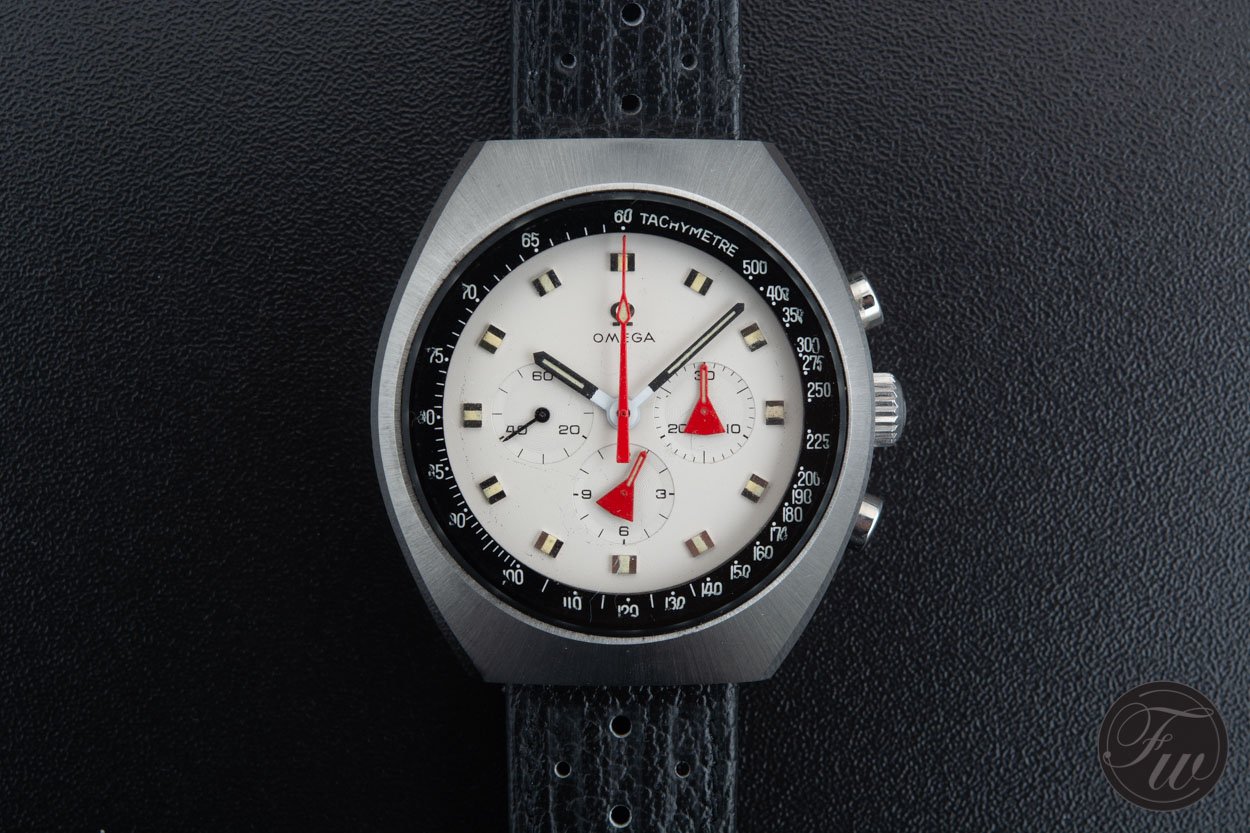
We did a thorough write-up on Omega’s Alaska Project here, which you can check out if you’re unfamiliar with it. The Alaska Prototype had a case reminiscent of a UFO and was made of polished titanium. The watch was a bit too expensive for NASA, and based on the feedback of NASA engineer James H. Ragan, Omega decided to go back to the drawing board and opted to use the case of the Mark II. That case was already in production at the time, and Ragan expressed his appreciation for its design. Omega created a few of those Alaska watches and shipped them to NASA. At least one of them ended up in a Phillips auction in 2018 and fetched a whopping CHF 193,750.
This has nothing to do with the Speedmaster Mark II 145.014 Racing in this article, but I thought it would be nice to share and remind you of this association.
Some thoughts on the Speedmaster Mark II
Powered by the same caliber 861 as the regular Speedmaster Professional Moonwatch and made at the same time with the same quality control as the Speedmaster ref. 145.022, these 1969–1975 Mark II models are still a bargain. The standard black-dial Speedmaster Mark II 145.014 starts at around €2,000, and if you fancy a gray racing dial with some bright colors, you’ll need to shell out closer to €3,000 or more. But that’s nothing compared to the multi-thousand-euro premium for a Moonwatch with a racing dial, including the 2004 Japanese-market version.
Even by today’s standards, you can buy something pretty amazing for less than €3,000. You just need to realize that vintage watches come with a certain risk and that repair and restoration can add a significant amount to the purchase price. If you’re a Speedmaster collector, you need a Mark II in your collection (or a Mark IV with the same case but a different movement and dial). These watches are very comfortable on the wrist and feel similar to wearing the regular Speedmaster Professional Moonwatch. You can put them on a leather strap to change the appearance a bit, but I prefer them on the original stainless steel bracelet.
This Speedmaster Mark II in this article is on the ref. 1162 bracelet, a variation on the famous 1171 bracelet from the Moonwatch. You will also come across Mark II models on a different bracelet with two polished intermediate links. This is a ref. 1159 bracelet, which is perfectly original as well.
If you search for these watches on Chrono24, for example, you will notice that some of them have had a hard life. The easiest way to tell is by the number of dents, scratches, and of course, the dulled (or nonexistent) brushed finish on the case. Some of them have been restored or polished the wrong way, ending up with a highly polished case. A watchmaker can restore the original finish with a lapping machine, but it does remove a bit of material from the case, thus posing the risk of it losing its original shape a bit. Always be careful with this. The watch pictured in this article also had a good life, you could say, but the original finish is still visible.
You can find more information on the Speedmaster Mark II 145.014 here. All other Speedy Tuesday articles that we’ve published are available here.
*This article first appeared on Fratello on December 17th, 2019.

